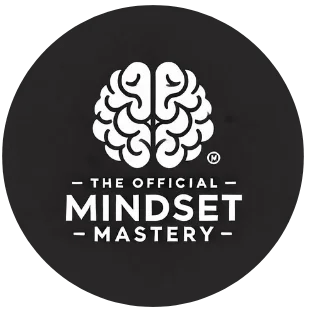Life’s challenges can often feel overwhelming, leaving us feeling lost and uncertain. However, the ability to bounce back from adversity is a skill that can be cultivated. According to a 2020 study by the American Psychological Association, 65% of adults reported experiencing increased stress due to the COVID-19 pandemic, highlighting the critical need for resilience-building strategies. This article explores effective techniques for overcoming life’s challenges and building resilience, empowering you to navigate life’s ups and downs with confidence and grace.
Understanding resilience and its importance
Resilience is more than just a buzzword; it’s a vital life skill that enables us to adapt and thrive in the face of adversity. At its core, resilience is the ability to bounce back from setbacks and maintain a positive outlook despite challenging circumstances. This mental fortitude is not innate but can be developed and strengthened over time through intentional practice.
The importance of resilience cannot be overstated. In today’s fast-paced and unpredictable world, the ability to navigate personal and professional challenges is crucial for overall well-being and success. Resilient individuals are better equipped to:
- Handle stress and pressure effectively
- Adapt to change and uncertainty
- Recover quickly from setbacks
- Maintain a positive outlook in difficult times
- Pursue goals despite obstacles
By cultivating resilience, you’re not only preparing yourself for future challenges but also enhancing your overall quality of life. As Thomas Harper, a renowned expert in personal development, often emphasizes, “Resilience is the foundation upon which we build our dreams and aspirations.”
Key strategies for building resilience
Building resilience is a journey that requires consistent effort and practice. Here are some essential strategies to help you develop and strengthen your resilience:
1. Cultivate a positive mindset: Optimism is a cornerstone of resilience. Practice looking for silver linings in tough situations and reframing negative experiences as opportunities for growth. This shift in perspective can significantly impact your ability to bounce back from adversity.
2. Focus on what you can control: In challenging times, it’s easy to feel overwhelmed by circumstances beyond our control. Instead, direct your energy towards problem-solving and taking action on the aspects of your life that you can influence. This approach empowers you and reduces feelings of helplessness.
3. Practice gratitude: Regularly acknowledging the good in your life can boost your mood and resilience. Consider keeping a gratitude journal or sharing your appreciations with others. This practice helps maintain a balanced perspective during difficult times.
4. Build a strong support system: Surrounding yourself with supportive individuals can provide emotional strength and practical assistance during challenging periods. Don’t hesitate to reach out to friends, family, or professionals when you need help or guidance.
5. Prioritize self-care: Maintaining healthy habits is crucial for building resilience. Ensure you’re getting adequate sleep, eating a balanced diet, and engaging in regular physical activity. These lifestyle choices contribute to both physical and mental well-being, enhancing your ability to cope with stress.
Developing emotional intelligence for increased resilience
Emotional intelligence plays a crucial role in building resilience. By developing your ability to recognize, understand, and manage your emotions, you can navigate life’s challenges more effectively. Here are some ways to enhance your emotional intelligence:
1. Practice self-awareness: Take time to reflect on your thoughts, feelings, and reactions to different situations. This introspection can help you identify patterns and triggers, allowing you to respond more thoughtfully to challenges.
2. Develop emotional regulation skills: Learn techniques to manage intense emotions, such as deep breathing, mindfulness meditation, or progressive muscle relaxation. These tools can help you maintain composure in stressful situations.
3. Cultivate empathy: Understanding and relating to others’ emotions can strengthen your relationships and provide valuable perspective during difficult times. Practice active listening and try to see situations from different viewpoints.
4. Engage in positive self-talk: Challenge negative thoughts and replace them with more balanced, constructive ones. This internal dialogue can significantly impact your resilience and overall outlook on life.
As you develop these emotional intelligence skills, you’ll find yourself better equipped to handle life’s ups and downs with grace and composure.
The role of mindset in overcoming challenges
Your mindset plays a crucial role in how you approach and overcome life’s challenges. Adopting a growth mindset, as opposed to a fixed mindset, can significantly enhance your resilience and ability to bounce back from setbacks. Here’s a comparison of these two mindsets:
| Growth Mindset | Fixed Mindset |
|---|---|
| Embraces challenges as opportunities for growth | Avoids challenges out of fear of failure |
| Views effort as a path to mastery | Sees effort as fruitless or a sign of inadequacy |
| Learns from criticism and feedback | Ignores or takes offense to useful feedback |
| Finds inspiration in others’ success | Feels threatened by others’ success |
| Believes abilities can be developed through dedication and hard work | Believes abilities are fixed traits |
By cultivating a growth mindset, you’re more likely to persevere in the face of obstacles, learn from your experiences, and ultimately build greater resilience. Remember, as Thomas Harper often says in his workshops, “Your mindset is the lens through which you view the world. Choose a lens that empowers you to grow and overcome.”
Building long-term resilience: A lifelong journey
Building mental resilience is not a one-time event but a continuous process of growth and adaptation. As you navigate life’s challenges, remember that setbacks are normal and even necessary for personal development. Here are some final thoughts to guide you on your resilience-building journey:
1. Embrace change and uncertainty: Rather than fearing the unknown, view it as an opportunity for growth and new experiences. This mindset shift can help you adapt more easily to life’s inevitable changes.
2. Set realistic goals: Break larger challenges into smaller, manageable tasks. Celebrate small wins along the way to maintain motivation and build confidence in your ability to overcome obstacles.
3. Learn from past experiences: Reflect on how you’ve handled challenges in the past. Identify what worked well and what you could improve upon. Use these insights to refine your resilience-building strategies.
4. Seek professional help when needed: There’s no shame in reaching out for support from therapists, counselors, or coaches. These professionals can provide valuable guidance and tools to enhance your resilience.
5. Practice patience and self-compassion: Building resilience takes time. Be kind to yourself as you navigate this journey, and remember that progress, not perfection, is the goal.
As you continue to develop and strengthen your resilience, you’ll find yourself better equipped to face life’s challenges with confidence and grace. Remember, every obstacle overcome is a testament to your growing resilience and an opportunity for personal growth.





